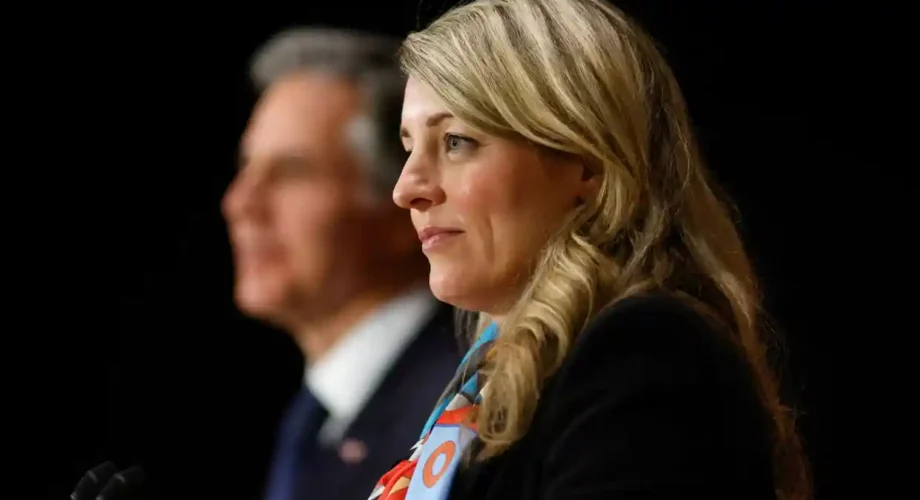
Mélanie Joly’s comments come ahead of several global summits that the Canadian prime minister, Justin Trudeau, recently attended.
Canada’s foreign minister, Mélanie Joly, has said China has become “increasingly disruptive” on the world stage as she hinted in a speech at a new Indo-Pacific strategy expected to be released this month.
Her comments come ahead of several summits that Canada’s prime minister, Justin Trudeau, is to attend, including the Association of Southeast Asian Nations in Cambodia, the G20 in Indonesia, and the Asia-Pacific Economic Cooperation in Thailand.
“China is an increasingly disruptive, global power,” Joly told a Toronto audience. “It seeks to shape the global environment into one that is more permissive for interests and values that increasingly depart from ours.
“And China’s rise as a global actor is reshaping the strategic outlook of every state in the region, including Canada.”
In an outline of Ottawa’s new policy strategy, which is due to be released in the coming weeks, Joly said it would be critical to expand relations with India and other countries in the region, as well as Taiwan. She did not discourage further trade with China, which has become Canada’s second-largest trading partner, despite strained diplomatic ties. But she warned Canadian firms they “need to be clear-eyed” about doing business in and with China.
Her comments came days after Trudeau said that China is “play[ing] aggressive games” to undermine democratic institutions amid reports that Beijing had actively interfered in Canada’s federal elections.
His comments on Monday came after reports that Beijing had funded a clandestine network of candidates in Canada’s 2019 election and just days after the federal police force said it was investigating a secret network of illegal Chinese police stations in Toronto.
Bilateral relations soured after Canada’s 2018 arrest of a Huawei executive on a US warrant, and Beijing’s detention of two Canadians in apparent retaliation. All three were released last year as part of a deal with US prosecutors.
Joly said Canada must continue to deal with China on global issues such as the climate crisis. Notably, China will chair a UN biodiversity conference in Montreal in December. But she promised Ottawa would be vocal on China’s poor treatment of Uyghurs and other minorities, its crushing of free speech in Hong Kong, military threats against Taiwan, and any moves to curtail international navigation rights in the region.
She said: “We will challenge China when we ought to. We will cooperate with China when we must.”
“The Indo-Pacific region is the epicenter of a generational global shift,” she added, predicting it will account for half of the global economy by 2040.
Joly also noted an increased Canadian military presence in the Pacific and promised more staff at its embassies tasked with analysing the impact of Chinese policies.
At global forums she said Canada and its allies will be “pushing back against behaviours that undermine international norms”.